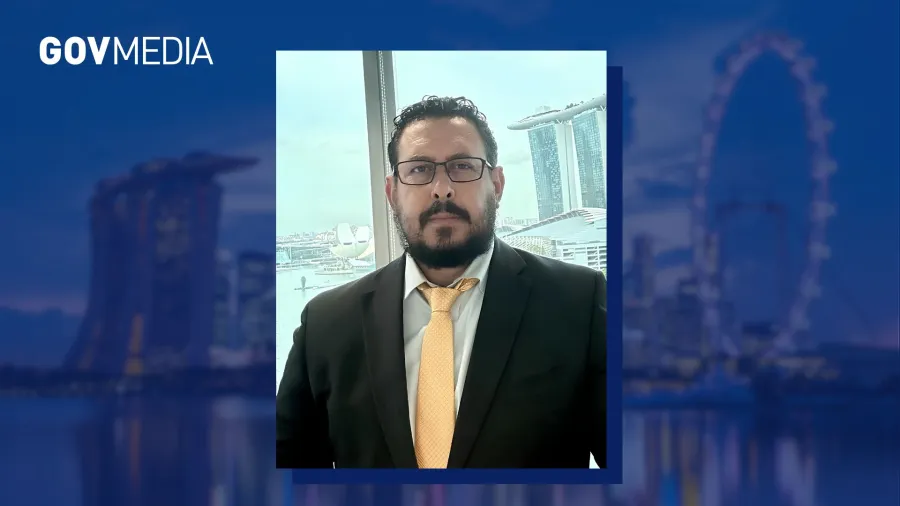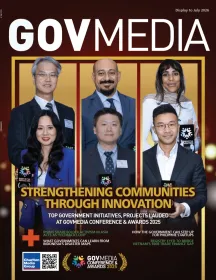
Engage public for sustainable growth through involvement, realistic targets, best practices – World Bank’s Daniel Levine
World Bank's Daniel Levine shares strategies for building robust economies and resilient societies in a post-pandemic world where governments face a plethora of challenges.
Governments face formidable challenges in driving growth and fostering resilience amidst various economic uncertainties, geopolitical tensions, and the far-reaching impacts of the pandemic. Despite this, governments can lay the groundwork for a prosperous future through several strategies.
Daniel Levine is an accomplished professional with a distinguished career at the World Bank, where he currently holds the position of Senior Country Officer in the Singapore office. Since joining the organisation in 2002, he has amassed a wealth of experience in both the public and private sectors.
In his role as a key member of the Singapore management team, Levine acts as a focal point for partnerships within the Singapore ecosystem. He excels in stakeholder engagement and is responsible for overseeing the administration of a team of over 250 professionals working in the Singapore office. Practice Managers in the World Singapore office oversee the technical implementation of a portfolio of over US$30b across East Asia, South Asia, and the Pacific.
Prior to his appointment in Singapore, he led the highly successful Tokyo Development Learning Center (TLDC) programme, a partnership between the World Bank and the Government of Japan. TDLC supports and facilitates strategic WBG and client country collaboration with select Japanese cities, agencies, and partners for joint research, knowledge exchange, capacity building, and other activities that develop opportunities to link Japanese and global expertise with specific project-level engagements to maximise development impact.
The TDLC programme was global in reach and thematically focused on smart cities, urban planning, urban service provision, municipal finance, and administration, within the overall themes of Local Economic Development (LED) and Quality Infrastructure Investment (QII). Through the design, implementation, and cycling of the TDLC Knowledge Ecosystem, Levine led the programme to influence the design and implementation of over US$75b in World Bank operations across nearly 90 countries in the short span of 3.5 years. Additionally, the programme produced more than 65 reports and studies that codified the development experiences of Japan and packaged them for practical application globally.
In the private sector, Levine has worked in government affairs, private equity, and management consulting.
In his free time, Levine serves as the Commissioner for the Singapore American Community Action Council (SACAC) a non-profit dedicated to youth development through athletic engagement. He also is a coach of the Singapore American Football League’s High School Team, the Falcons, which competes internationally.
In an interview with GovMedia, Levine delved into the strategies that can shape the trajectory of nations in a post-pandemic world and provided guidance for governments seeking to build robust economies and resilient societies.
Factors to drive resilience, growth
There have been several ongoing challenges affecting Asian economics over the past year, including the economic impacts of the pandemic, global inflation, conflict in Ukraine, and food security concerns, amongst others.
Levine believes there are several factors that contribute to driving resilience and growth, including sound macroeconomic policies, investment and trade, innovation and digitalisation, human capital, social protection systems, sustainable development, and regional cooperation.
Macroeconomic policies that control inflation, promote investment, and support job creation are essential for maintaining stability and confidence in the economy. Governments can promote investment and trade, which are key drivers for growth, by creating a favourable business environment and reducing tariffs or other barriers to trade.
Innovation and digitalisation are crucial for boosting productivity and enhancing competitiveness, and governments can support these by investing in research and development and creating a regulatory framework that fosters innovation and entrepreneurship. Human capital development, meanwhile, allows for sustained economic growth if supported through investments in education and healthcare.
In order to protect vulnerable members of society from economic shocks, social protection systems are crucial. Governments can strengthen these systems by providing social safety nets such as unemployment benefits and healthcare subsidies. On the other hand, mitigating climate and economic impacts through sustainable development is vital for long-term economic growth. This can be supported by investing in renewable energy sources, improving environmental protection measures, and promoting social inclusion.
Furthermore, regional cooperation plays a pivotal role in enhancing trade, investment, and knowledge sharing. Governments can engage in regional trade agreements and collaborate with neighbouring countries to address common challenges.
In implementing these strategies, governments can seek assistance and expertise from international institutions such as the World Bank Group, which can provide valuable support, both in terms of financial resources and technical expertise, to help governments tailor these strategies to their specific circumstances.
Meanwhile, amidst an increasing need for connectivity in the public sector, governments have to ramp up digital service delivery efforts for businesses and citizens to access services easier. This can be done by investing in robust digital infrastructure, implementing user-friendly e-government platforms, promoting digital literacy through campaigns and training, leveraging mobile technology for convenient access to services, employing data analytics and AI to improve service delivery, and fostering public-private partnerships to enhance connectivity and innovation.
Public involvement and realistic targets for sustainable growth
Evaluating the growth and success of governments is a complex task that requires the use of key performance indicators (KPIs). These indicators encompass economic, social, and governance aspects, providing a comprehensive view of a nation's development. However, achieving these indicators and ensuring sustainable growth requires active involvement and support from the public, along with realistic targets, stronger data collection and monitoring, policies and strategies that align with desired outcomes, and learning from international best practices.
“By focusing on these aspects, leaders can track their governments' performance, identify areas for improvement, and work towards achieving sustainable growth and development,” stressed Levine.
The World Bank Group, for its part, has introduced B-READY, a new initiative aimed at assessing the business and investment climates in 180 economies annually. B-READY provides detailed data and summary reports with two main objectives: advocating for policy reform and informing economic research and policy advice. As the B-READY benchmark becomes adopted globally, many agencies and leaders will utilise its specific KPIs to monitor year-to-year improvements within the business environment.
In terms of promoting governments’ commitment to net-zero emissions by 2050, Levine stressed that it is important to enhance public support and participation. One way to do this is through public awareness and education campaigns that foster a sense of responsibility and encourage behavioural changes. Governments may also practice open and transparent communication on the benefits, challenges, and opportunities that lie in transitioning to a net-zero emission economy. Lastly, citizens must be included in governments’ decision-making processes, and they may be able to provide their input to enhance legitimacy and ensure that policies align with public needs and aspirations.
“Citizen involvement fosters a sense of ownership and strengthens the commitment to achieving net-zero emissions,” Levine said.
As a judge in this year’s Gov Media Awards, Levine will be looking for projects that demonstrate effective collaboration and engagement with stakeholders and have the potential to be scaled up or replicated across different government levels or regions to demonstrate long-term viability and impact. He will also prioritise projects that design for flexibility in adapting to changes as well as those that target frontier or future-oriented challenges.
“By considering these qualities, we can recognise initiatives that have made significant contributions to the government sector, showcase innovation and impact, and inspire others in their pursuit of excellence,” Levine stated.














